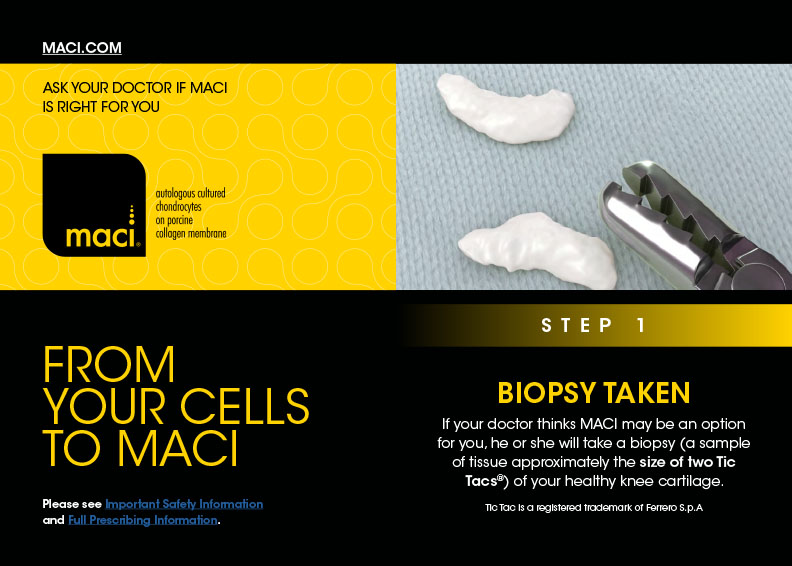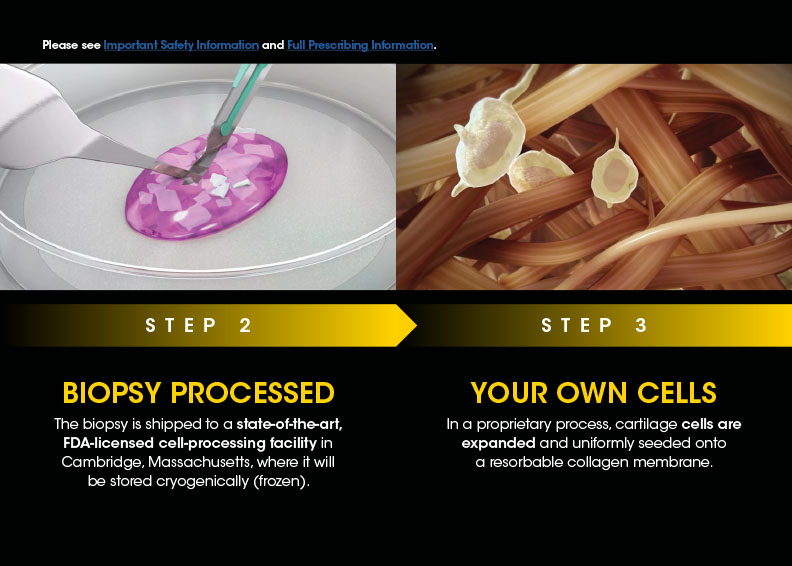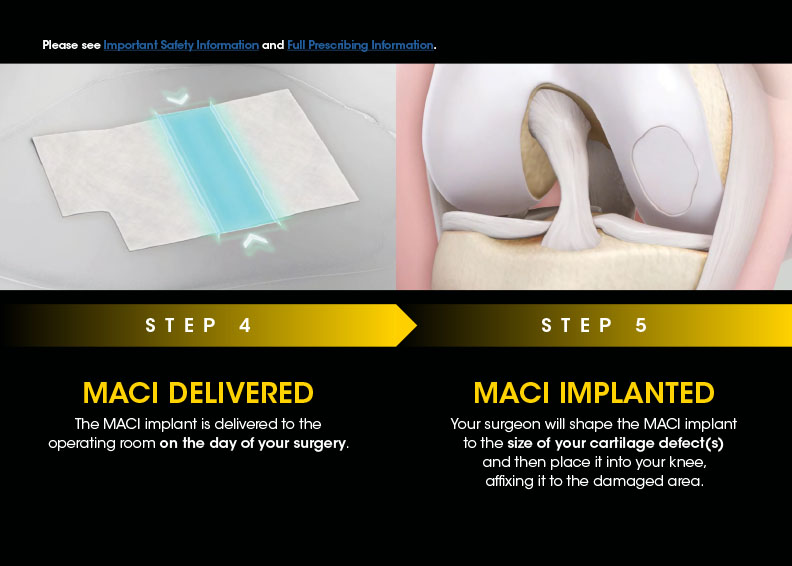Did you know cartilage damage doesn't heal on its own and could get worse and more painful if not addressed early? And if left untreated, knee cartilage pain can become so chronic that it can impact your quality of life.
That's why it is critical to address your knee cartilage pain as soon as possible.
The below video is not intended to provide medical advice. Always talk to your healthcare provider with any questions. You should also talk to your healthcare provider before starting any exercise and to see if MACI may be right for you. Individual results will vary. Paid testimonial by a real MACI surgeon.
Healthy articular cartilage is a smooth, white tissue covering the ends of bones that serves as a cushion preventing friction during joint motion. Orthopedic surgeon Dr. Cassandra Lee compares damage to this glossy cartilage to a pothole in the street. "When you have a small pothole, it is contained, you can fill that pothole," says Dr. Lee. "Now, if you give it time when more driving can occur, that pothole is going to send more cracks, and that pothole is going to break down a little more." A defect in your knee cartilage responds the same way. If neglected, you may experience a worsening of symptoms, including increased pain, swelling, clicking or locking in your knee; however, repairing the defects with a procedure like MACI can heal your cartilage and slow deterioration.
To better understand if treatment for knee cartilage damage is right for you, ask yourself:
- Have you given up sports or everyday activities due to knee pain?
- Is knee pain limiting your ability to do your job or household chores?
- Do you experience clicking or locking in your knee?
- Do you find yourself avoiding the stairs due to knee pain?
- Have you scaled back doing activities you enjoy?
If your answer was "yes" to any of these questions, consider talking to your doctor about treatment options like MACI.
MACI is a surgical technique that uses a patient's own cells to regrow new cartilage for the adult knee joint. It is not known whether MACI is effective in joints other than the knee. It is not known whether MACI is safe or effective in patients over the age of 55 years. The first step of MACI involves an arthroscopy where a surgeon takes two to three small samples of a patient's knee cartilage cells.
These cells are sent back to our FDA-licensed facilities, where we aseptically manufacture a new cartilage implant from the patient's own cells.
Once the cartilage implant is ready, a surgeon takes the implant and cuts it to fit a patient's knee defect.
Common side effects include joint pain, tendonitis, back pain, joint swelling, and joint effusion. More serious side effects include joint pain, cartilage or meniscus injury, treatment failure, and osteoarthritis.
After the implantation, you will begin a physician-prescribed rehabilitation program specifically designed for you. Every patient is different and heals at his or her own pace. That's why our rehab is tailored specifically to your goals and objectives to help you get back to your favorite activities at your speed.
Without proper treatment for damaged knee cartilage, your pain may get worse. Learn more about the MACI procedure to see if this treatment option is right for you.
Please see below for full indication and ISI. Blog posts are intended to provide educational information. Always talk to your doctor with any questions.




